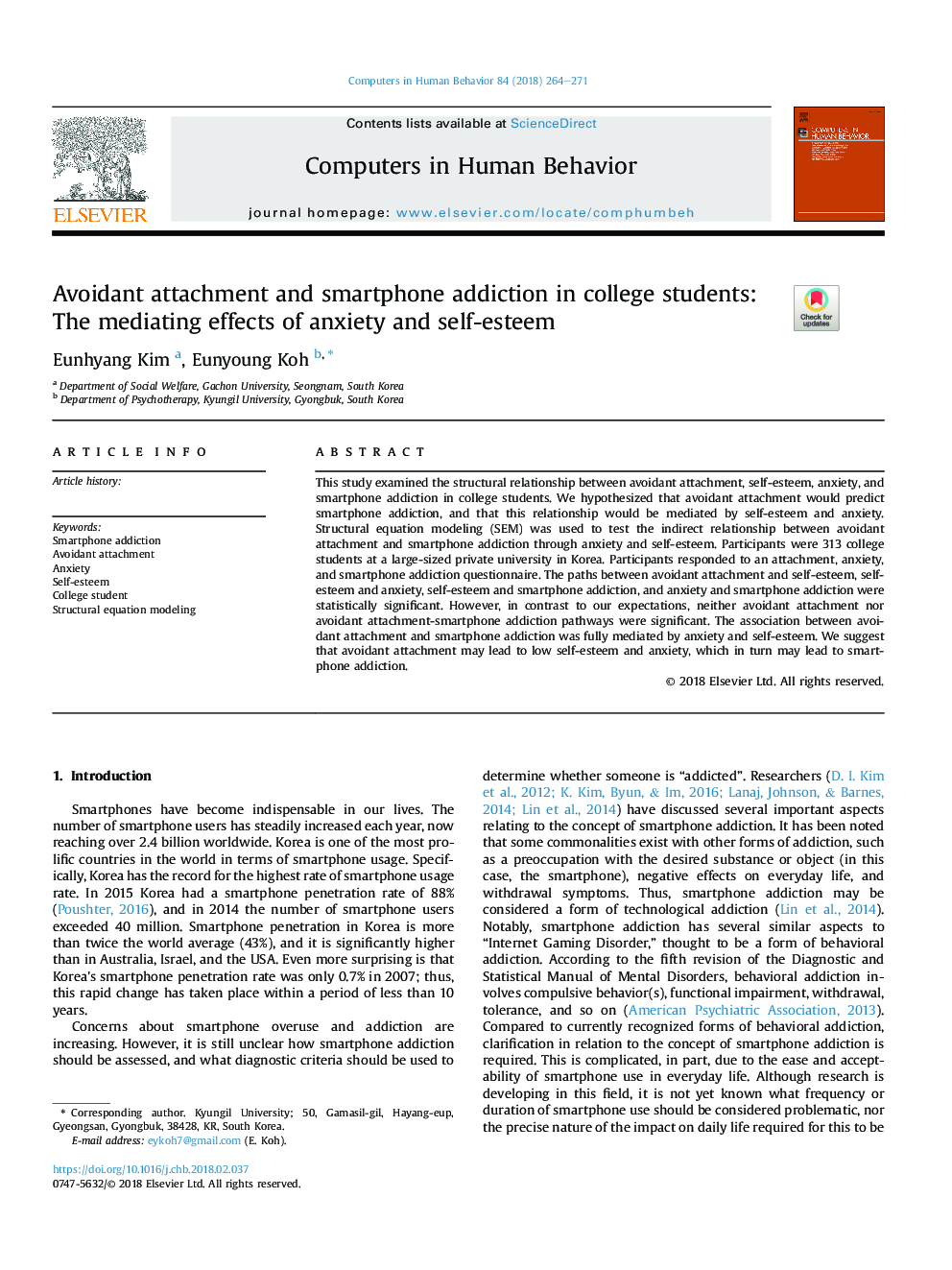| Article ID | Journal | Published Year | Pages | File Type |
|---|---|---|---|---|
| 6836028 | Computers in Human Behavior | 2018 | 8 Pages |
Abstract
This study examined the structural relationship between avoidant attachment, self-esteem, anxiety, and smartphone addiction in college students. We hypothesized that avoidant attachment would predict smartphone addiction, and that this relationship would be mediated by self-esteem and anxiety. Structural equation modeling (SEM) was used to test the indirect relationship between avoidant attachment and smartphone addiction through anxiety and self-esteem. Participants were 313 college students at a large-sized private university in Korea. Participants responded to an attachment, anxiety, and smartphone addiction questionnaire. The paths between avoidant attachment and self-esteem, self-esteem and anxiety, self-esteem and smartphone addiction, and anxiety and smartphone addiction were statistically significant. However, in contrast to our expectations, neither avoidant attachment nor avoidant attachment-smartphone addiction pathways were significant. The association between avoidant attachment and smartphone addiction was fully mediated by anxiety and self-esteem. We suggest that avoidant attachment may lead to low self-esteem and anxiety, which in turn may lead to smartphone addiction.
Keywords
Related Topics
Physical Sciences and Engineering
Computer Science
Computer Science Applications
Authors
Eunhyang Kim, Eunyoung Koh,
